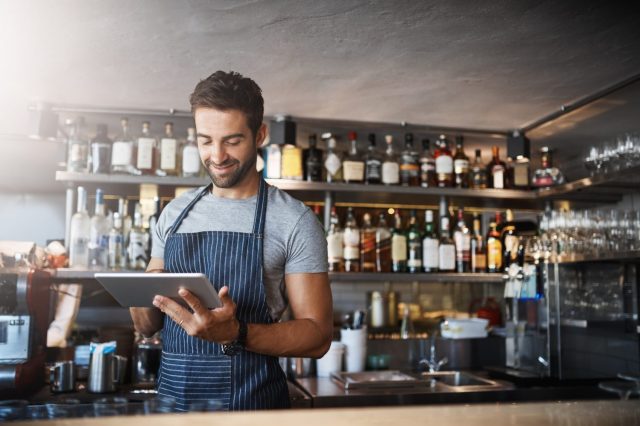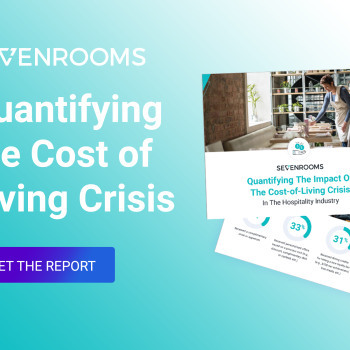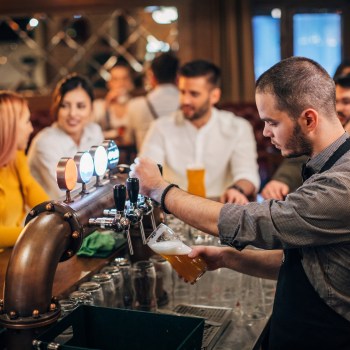A report commissioned by POS providers Lightspeed surveyed 1,100 hospitality operators and 7,000 consumers from the United States, Canada, Australia, UK, France, Germany and the Netherlands.
Lightspeed’s report, entitled ‘State of the Global Hospitality Industry’, revealed insights about customer experience and sentiment, and the challenges and trends impacting hospitality operators.
The number one challenge facing hospitality businesses is no surprise: rising costs of food and supplies. Thirty-five per cent of respondents indicated this was the most significant issue facing them today, with 70 per cent of bars and pubs surveyed in Australia saying they have had to raise menu prices. The same number also said they had implemented tighter inventory practices in response.
Staffing continues to be an on-going issue, with over a quarter (26 per cent) citing hiring new staff as a key challenge, and eight per cent pointing to staff retention. Furthermore, 60 per cent of bars and pubs surveyed said they are working with less staff than they need, and 70 per cent are raising wages to attract and retain talent.
In response, Lightspeed found that 50 per cent of Australian bar and pub businesses surveyed had adopted ‘new technology solutions’ to streamline employee shifts, second only to France (62 per cent) in the markets examined. A fifth of Australian bars and pubs have reduced their operating hours to ‘avoid staff burnout.’
Customers too are facing a spending squeeze. Forty per cent say they want to support venues during these difficult economic times, but nearly a third feel that they are unable to support the industry as a result of reduced spending ability. Nevertheless, almost one quarter (24 per cent) of participating Australian customers said they were likely to socialise in bars, while a further 16 per cent said they were extremely likely.
Opportunities and improvements
Almost half (48 per cent) of Australian hospitality owners believe that implementing more sustainable practices will attract customers. And the industry is responding, with 67 per cent of multi-location hospitality venues adopting food waste policies. Exactly half of Australian bars and pubs were more likely to incorporate local and farm-fresh foods to their menus compared to the worldwide average.
The report also detailed drinking trends and areas of growth in the global hospitality industry, including the year on year growth of menu items. In bars and pubs, on-alcoholic drinks grew by 44 per cent in 2022 when compared to the same period in 2021, while cocktails grew by 39 per cent and wine by 36 per cent (though it should be noted that many markets experienced on-premise restrictions in 2021).
In bars, spirits enjoyed a dollar sale value of USD$121.6m, followed by beer at $107.4m and cocktails at $70.3m.
Tech offers a pathway
Peter Dougherty, General Manager of Hospitlaity at Lightspeed, believes that technological solutions can help venues to take advantage of these opportunities, and ease major pain points for operators.
“Digital adoption has been an important lifeline for Australian hospitality businesses and it’s clear there are greater efficiencies to be realised with new technology.Our goal is to partner with our customers, sharing reliable insights at every level, from industry, regional, the customer perspective, right down to what is performing best on the menu.”
Lightspeed gives the example of Melbourne bar and restaurant, Mr Miyagi, which it says has used technology to improve customer experience and reduce costs.
“We implemented pay-at-table and now our servers have iPads that they take to process your order tableside. And that’s reduced our labour costs by about 30%,” said Kristian Klein, Director of Mr Miyagi.
And for hospitality staff, Klein says these solutions allow the focus to be on the human connection with customers.
“If you order a glass of wine, we hit two buttons and that wine is on the way to you. It’s freed everything up so much in terms of time and efficiency and ability to spend time with the guest, which is the most important thing for us.”
Read the full report here (sign up required).



